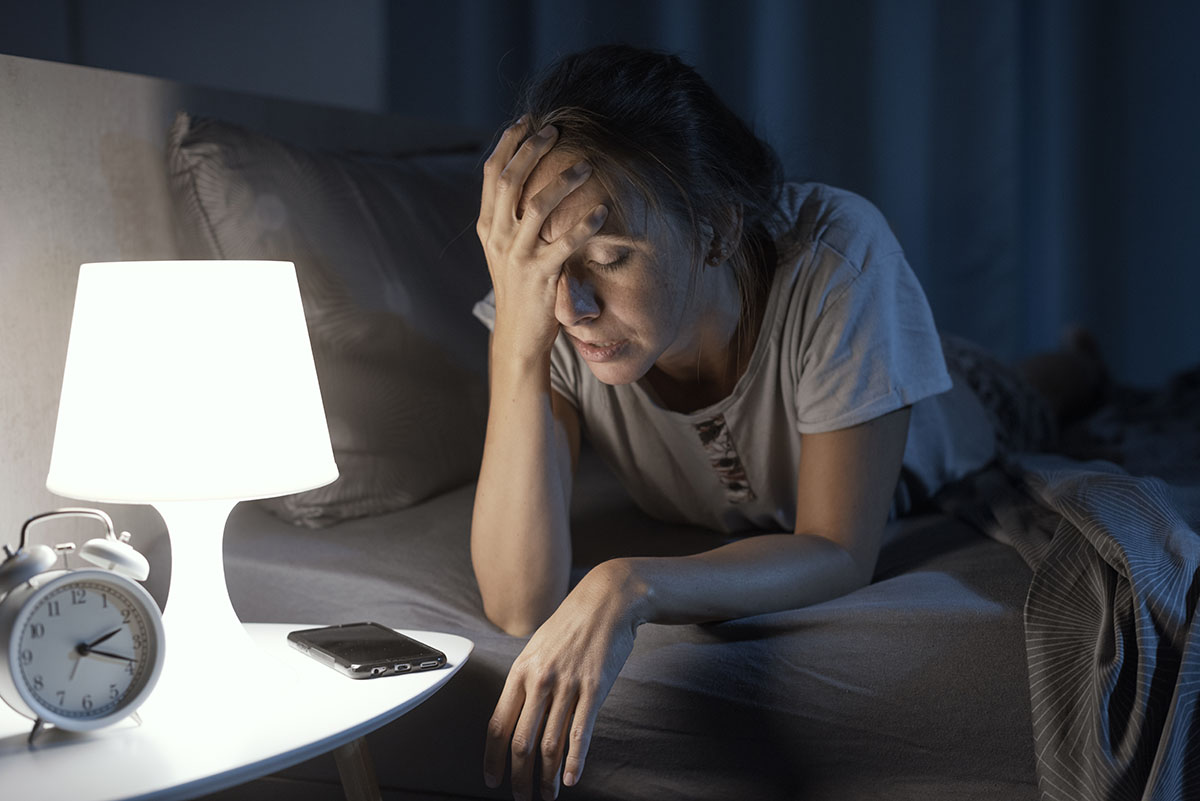Anxiety is a natural human emotion that helps us respond to stress and potential threats. While everyone experiences anxiety from time to time, chronic and excessive feelings of worry and fear can negatively impact one’s mental health, leading to an anxiety disorder. While multiple types of anxiety disorders exist, many tend to be worse at night and can uniquely affect women. Various treatment options are available to help manage anxiety, including worsening anxiety at night.
Women’s Recovery offers a women’s anxiety treatment program in Colorado. Our program is designed to provide comprehensive, multidisciplinary care that addresses the unique challenges of anxiety and related conditions. We offer a range of evidence-based therapies and lifestyle approaches to help women gain the skills they need to manage their anxiety and live healthy, fulfilling lives. Call 833.754.0554 today to get started.
What Is Anxiety?
Anxiety is a feeling of unease, such as worry or fear, that can be mild or severe. It is a normal response to stress, but when it becomes overwhelming, it can interfere with daily life and lead to mental health disorders. Common symptoms of anxiety include the following:
- Feeling restless or on edge
- Becoming easily fatigued
- Difficulty concentrating
- Irritability
- Muscle tension
- Sleep disturbances
Anxiety can manifest in different situations, such as speaking in public, meeting new people, or being faced with a challenging task. It’s essential to recognize the signs and symptoms of anxiety to seek appropriate help and support.
Types of Anxiety Disorders
There are several types of anxiety disorders, including:
- Generalized Anxiety Disorder (GAD) – GAD is characterized by excessive worry about everyday matters, even when there is little reason to be concerned. People with GAD may experience restlessness, fatigue, and difficulty concentrating.
- Social Anxiety Disorder – Also known as social phobia, this disorder involves intense fear of social situations due to the fear of being judged or embarrassed. This can lead to avoidance of social events and isolation.
- Panic Disorder – Panic disorder is marked by recurrent panic attacks, which are sudden episodes of intense fear accompanied by physical symptoms such as heart palpitations, shortness of breath, and dizziness.
It is not uncommon for anxiety to worsen at night, which is seen in many types of anxiety disorders. Generalized Anxiety Disorder (GAD) is one of the most common types of anxiety disorders that can worsen during the night. Women are twice as likely to be diagnosed with GAD than men, making it essential to understand the unique challenges women face with this disorder.
Anxiety in Women and Nighttime Worsening
Anxiety disorders often affect women differently than men. Hormonal fluctuations, such as those experienced during menstruation, pregnancy, and menopause, can contribute to increased anxiety levels. Additionally, societal expectations and gender roles may also play a role in the development and severity of anxiety in women.
Anxiety can be notably worse at night for several reasons:
- The quiet and solitude of nighttime can make anxious thoughts more prominent.
- Hormone levels can fluctuate at night, potentially worsening anxiety symptoms.
- Sleep disturbances, which are common in people with anxiety, can exacerbate nighttime anxiety.
At Women’s Recovery, our compassionate and experienced team offers a specialized anxiety treatment program for women.
Treatment Options for Anxiety
There are several effective treatments available for managing anxiety. Some options include:
- Medication – Antidepressants, anti-anxiety medications, and beta-blockers can help reduce anxiety symptoms.
- Cognitive-behavioral therapy (CBT) – CBT is a form of psychotherapy that focuses on identifying and changing negative thought patterns and behaviors.
- Eye movement desensitization and reprocessing (EMDR) – EMDR treats anxiety by helping individuals process emotional experiences.
- Mindfulness practices – Techniques such as meditation, deep breathing, and progressive muscle relaxation can help manage anxiety by promoting relaxation and self-awareness.
- Lifestyle changes – Eating a healthy diet, exercising regularly, and getting adequate sleep can help reduce anxiety.
Finding the right therapeutic approach, or combination of approaches, is essential in addressing anxiety disorders.
Women’s Recovery: Helping Women Overcome Anxiety
Women’s Recovery offers behavioral health treatment services specifically designed for women in Colorado. Our compassionate and experienced team understands women’s unique challenges when dealing with anxiety disorders. We provide personalized treatment plans that incorporate evidence-based therapies to help women regain control over their lives and achieve lasting recovery. We also provide support beyond therapy, including education about available resources in the community and connection to other recovery programs.
If you or a loved one is struggling with anxiety, contact Women’s Recovery today for support and guidance at 833.754.0554 or online.







